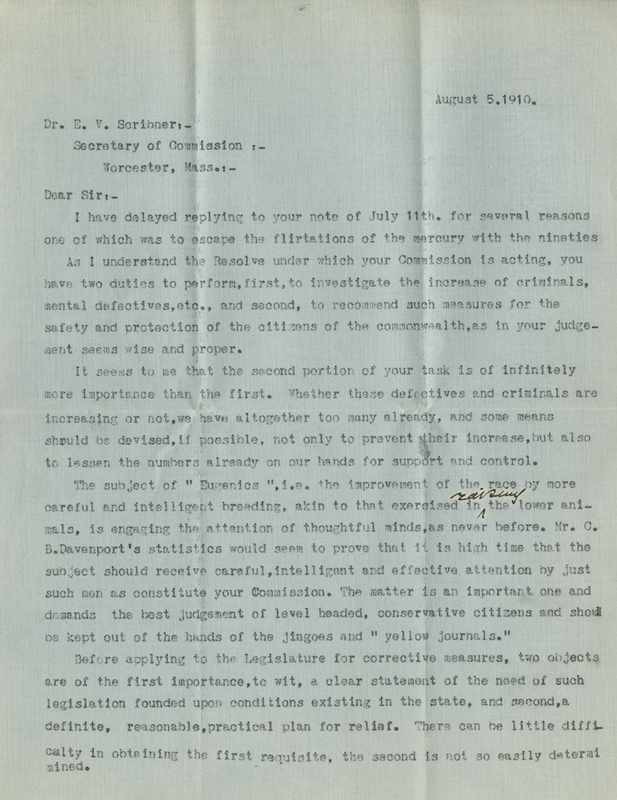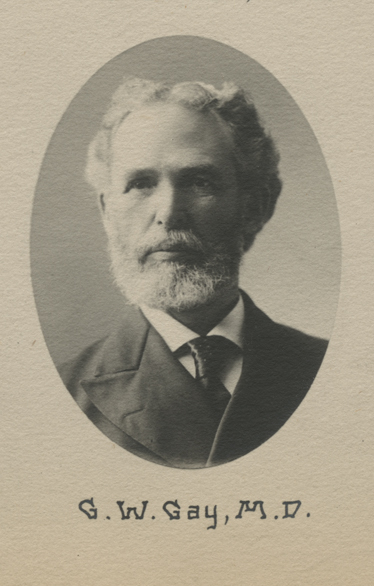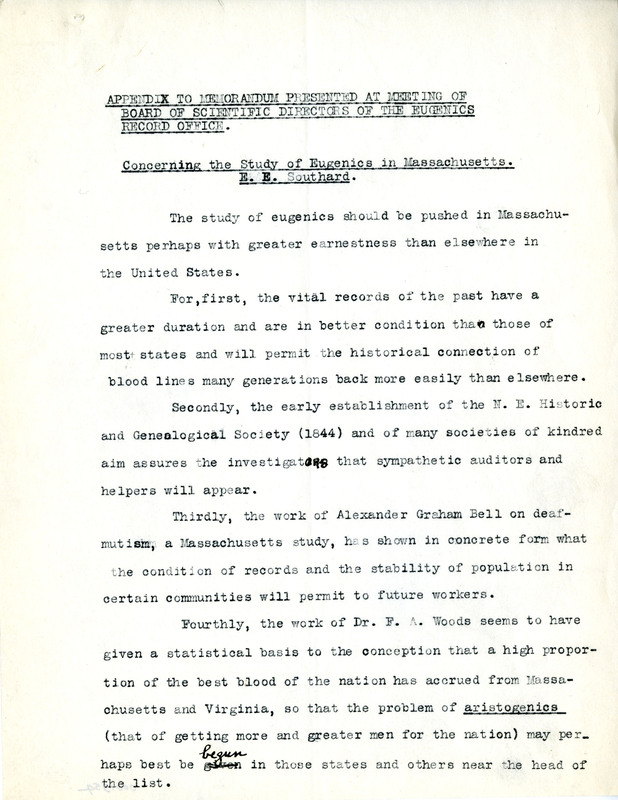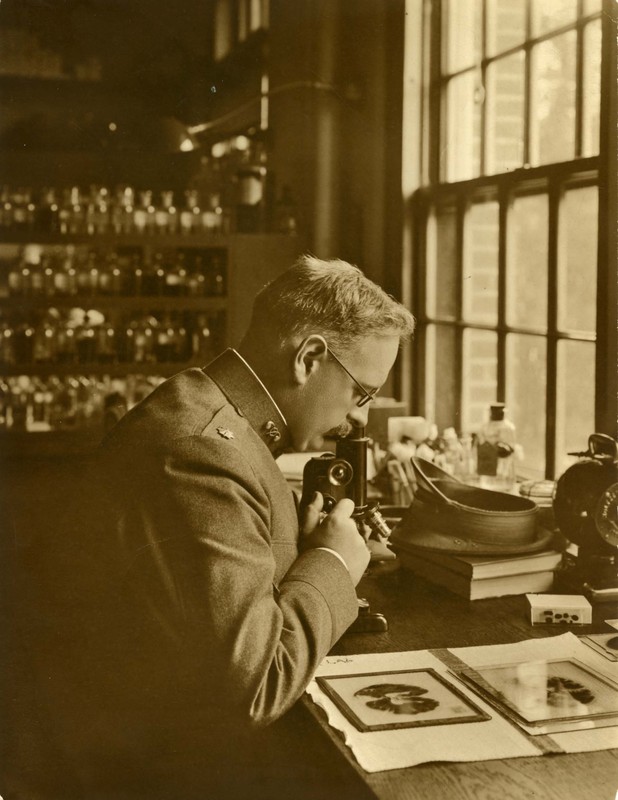Eugenics in Massachusetts
Former lecturer in surgery at Harvard and senior surgeon at Boston City Hospital, George W. Gay was approached by the Massachusetts Commission for expert advice on vasectomy and enforced sterilization: “The most feasible method of controlling women at present in this state is custodial supervision in an institution. Surgery offers an effectual preventative to conception, but it is not without some danger to life. With the male, however, there is a measure which is safe, practically painless, effective and free from any objections. Vasectomy … has been done a good many times with most satisfactory results to all concerned…. Your Commission is doubtless familiar with the admirable work which has been and is now being done by Dr. H. H. Goddard at Vineland, New Jersey…. Having spent a day there last year I became much interested in the results of his labors. They seemed to furnish undeniable evidence of the folly of allowing defectives to procreate. A large proportion of them are of no comfort or use to themselves or to society in general and moreover very many of them, as you well know, become public charges, for the support of whom you and I and everybody else who pays taxes have to foot the bills. This is all wrong and any experiment which is reasonable and practicable is worthy of trial.”
Harvard’s Bullard Professor of Neuropathology, E. E. Southard, presented this report on the desirability of eugenic research in Massachusetts, to the Board of Directors of the Eugenics Record Office, probably at its first meeting on December 12, 1910. He summarized, “It is probable that Massachusetts is hardly surpassable in this country as a field for the study of eugenics, including under that name not only 1) eugenics proper, that is, the study of hereditary conditions tending to maintain society at par (the prevention of deterioration) but also 2) cacogenics, the study of hereditary forces tending to pull society down, as well as 3) the possibly Utopian variant, aristogenics, with its hope of elucidating the method by which the best stock is assembled and improved.”




